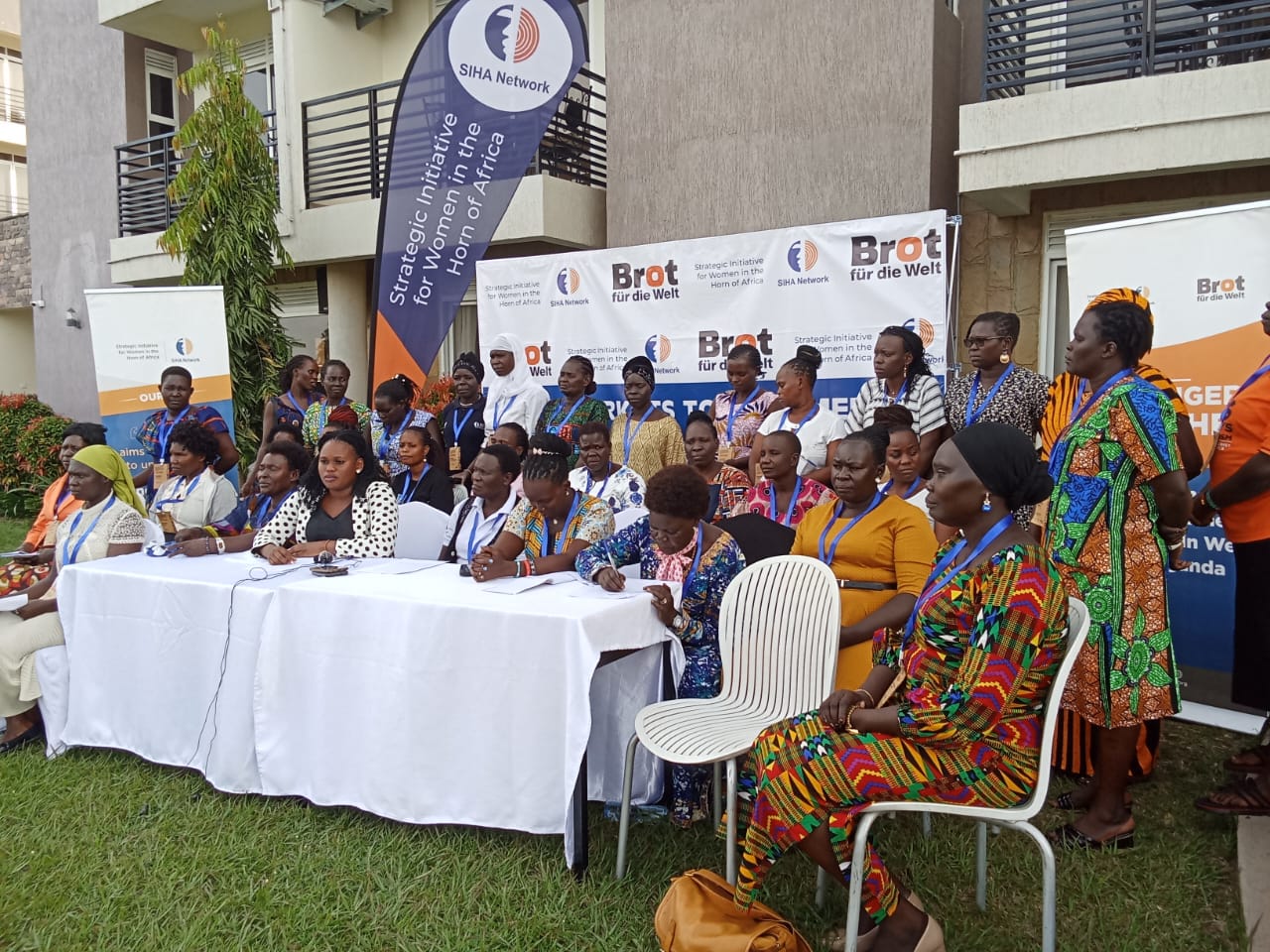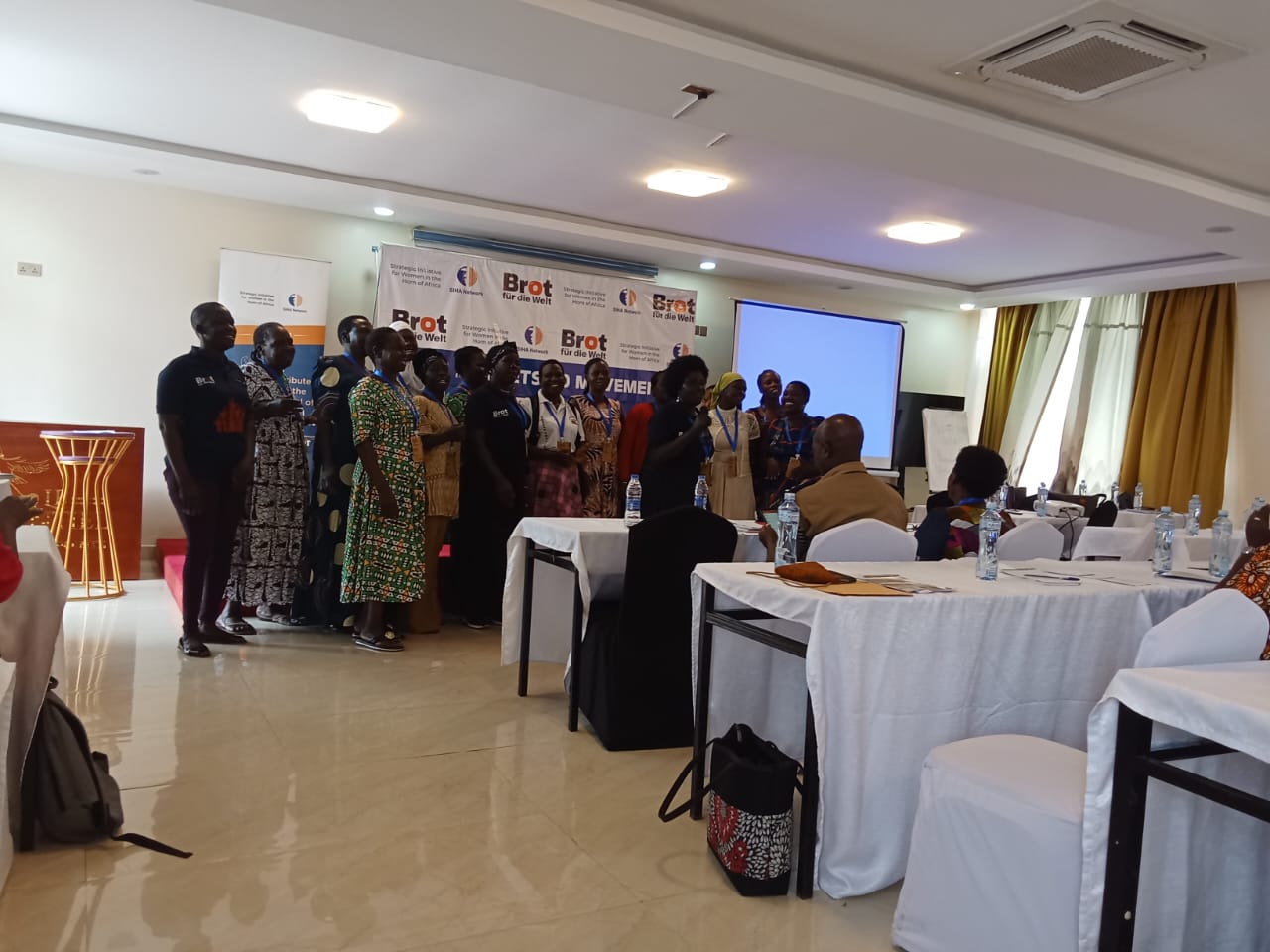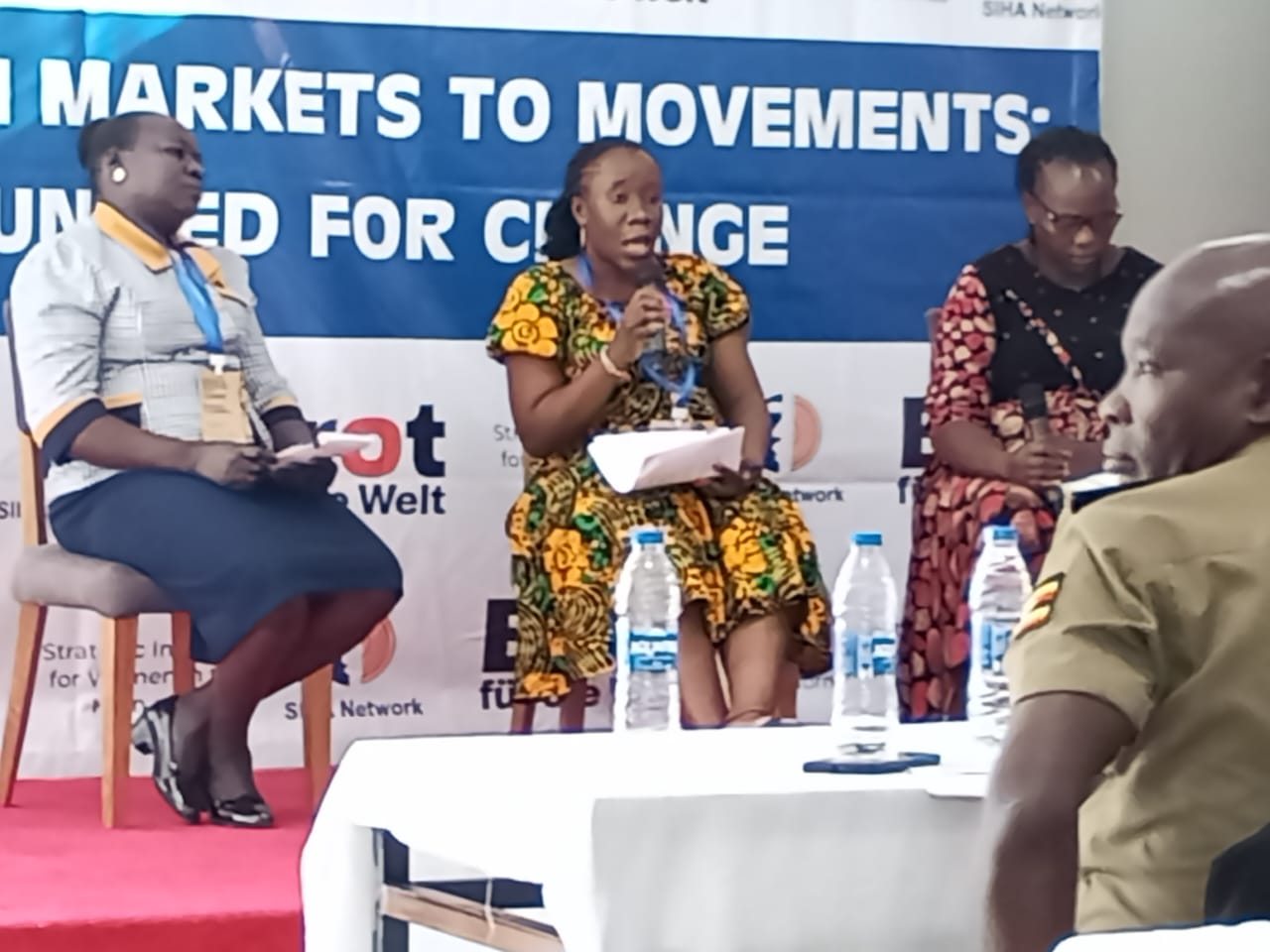Selfless Compassion Initiative Champions Women in the Informal Economy at Transformative Workshop
Selfless Compassion Initiative (SCI) recently participated in a groundbreaking two-day workshop that aimed to empower women working in the informal economy.
The workshop, themed “Building Bridges: Empowering Women in the Informal Sector or Economy,” was organized by the Strategic Initiative for Women in the Horn of Africa (SIHA Network).
This crucial event facilitated a learning and networking exchange between women market vendors from Kampala and Arua, with SCI proudly represented by Josephine Oluru.

Participants Pose For group
The workshop brought together voices from diverse cooperatives and key stakeholders, shining a light on the unique experiences of women market vendors and street vendors across Uganda.
These women form the backbone of many local economies but often face significant challenges that hinder their growth and financial stability.
Throughout the workshop, several distinguished panelists shared their personal journeys, struggles, and victories. Among the panelists were Joyce Oyeru from Mvara Women Market Vendors Cooperative, Jane Akwero, Chairperson of Driwala United Women Market Vendors Cooperative, Molly Wambi, Chairperson of Kawempe Women Street Vendors Cooperative, and Florence Achiro, LC3 Naguru and coordinator of Naguru Women Street Vendors Cooperative.

In her powerful opening remarks, Joyce Oyeru remarked,
“Women in the informal economy have played a crucial role in sustaining their families and communities despite the immense challenges they face. We have come a long way, but there is still much to do to level the playing field.”
The discussions delved into strategies for overcoming common obstacles faced by women in the informal economy, such as limited access to financial resources, harassment, and lack of recognition.
Florence Achiro reinforced this point, stating,
“Through these platforms, we have been able to advocate for our rights and bring local leaders to the table. We are not just vendors; we are businesswomen and key contributors to our local economies.”
One of the pivotal sessions, titled “Collaborating with Policymakers and Local Authorities: Strategies for Effective Advocacy and Policy Engagement,” was moderated by Mercy Owuor and featured prominent figures, including Gloria Yako, Speaker of Arua City, Olemaru Consolate, Senior Communications Officer at Arua City, and Ocotoko Mercy, Programs Officer at NUDIPU.
Consolate Olemaru underscored the importance of advocacy, saying,
“Advocacy starts with understanding the system and building partnerships with local authorities. By working together, we can push for better regulations and protections for women in the informal economy.”

The session encouraged women to critically assess their roles in advocacy and to use their collective strength to press for policies that will foster an enabling environment for women vendors.
Another critical conversation focused on the need to engage men as allies in the quest for gender equality. Hon. Godfrey Anguyo, Right Hon. Ismail Tuku, and SSP Jimmy Anguyo led the discussion on how men can actively support women’s economic empowerment.
SSP Jimmy Anguyo’s words resonated with the attendees when he stated,
“Empowering women is not just a women’s issue; it’s a societal issue. When women thrive, entire communities benefit. It’s time we all step up as allies.”

This session highlighted the importance of a holistic approach to gender equality, where both women and men work in partnership to address challenges in the informal sector. The workshop also focused on tangible opportunities for women to grow and expand their businesses.
Representatives from Finance Trust Bank and the Grow Loan Project shared insights on financial products specifically designed to support women market vendors.
These sessions aimed at addressing the perennial issue of limited access to capital, which has long been a barrier to the economic empowerment of women in the informal sector.
A session led by Elizabeth Kamigisha from FIDA Uganda provided a comprehensive overview of the International Labour Organization (ILO) Convention 190, which addresses violence and harassment in the world of work. Participants discussed the critical need for the convention’s implementation to protect women from exploitation, harassment, and violence in the workplace.
In a powerful conclusion to the session, Jackie Bless, the moderator, urged participants to stand united, declaring,
“We must stand united in our call for dignity, safety, and fairness in our workplaces. The time for change is now!”
Representing SCI, Josephine Oluru was deeply engaged in the discussions and emphasized SCI’s commitment to continuing the advocacy for women in the informal economy. She shared her reflections on the event, stating,
“This workshop has been an eye-opener. We have heard stories of resilience and strength, and we have learned strategies to continue advocating for women’s rights. SCI will continue to support these efforts, ensuring that women in the informal sector are heard and their issues addressed.”
The workshop concluded with a vibrant marketplace exhibition and action planning session, during which women market vendors outlined a roadmap for future collaborations and sustained advocacy efforts.
The drafting of a joint press statement by the women vendors, calling for the urgent adoption of ILO Convention 190, marked a pivotal moment in the push for systemic change.
SCI’s active involvement in this transformative workshop reaffirms its ongoing commitment to empowering women, particularly those in the informal sector.
Through continued engagement, SCI will champion efforts to create a more equitable and supportive environment for women market vendors across Uganda.
This event underscored the vital role of women in the informal economy and highlighted the power of collective action and advocacy.
With organizations like SCI at the forefront, the future looks promising for the empowerment and protection of women in the informal economy.
For more information about SCI and its programs, visit SCI’s website or contact us directly at [Contact Information].


